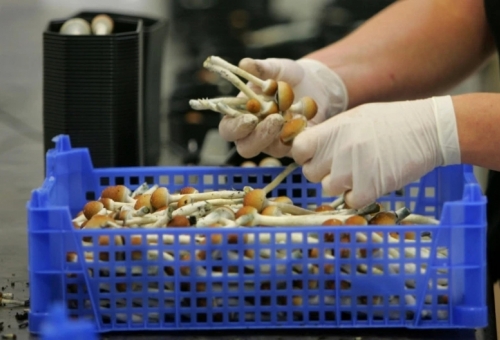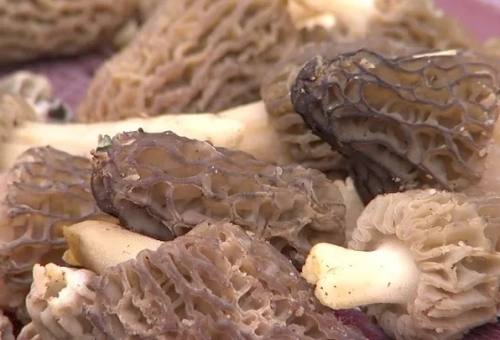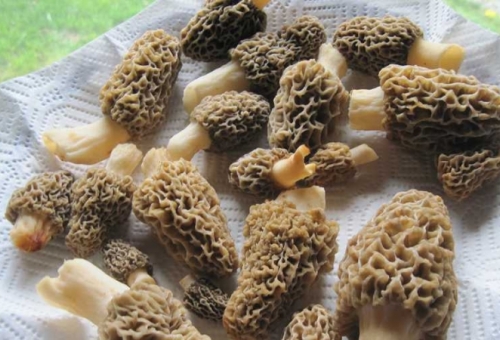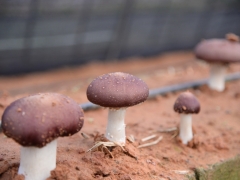
Golden oyster mushrooms are among the many varieties of gourmet mushrooms grown in Canada. | Barb Glen photo
Specialty mushroom production makes up only two percent of total Canadian production, but interest is growing
The specialty mushroom market has been growing steadily for years.
Ryan Koeslag, chief executive officer of Mushrooms Canada, said figures indicate a 25 percent increase annually in specialty mushroom production, although given there are relatively few growers, the numbers aren’t as large as that figure might suggest.
Statistics Canada data indicates specialty mushroom production makes up only two percent of total Canadian production based on 2017 surveys.
“It’s still significant for any industry,” Koeslag said about growth in the specialty category.
He said part of that increase is due to consumers’ willingness to explore a wider variety of foods.
Related stories:
Indoor farm started in a shipping container
Farm finds demand for gourmet mushrooms
“It’s been kind of why that increase has been there. And there’s been more interest in plant-based type foods. For example, if you cut an oyster mushroom horizontally, you can even use that as a substitute for scallops, for anybody who’s a vegetarian or wants to try to replicate that kind of texture and taste.”
Statistics Canada also notes in its 2017 economic profile that mushroom production, dominated by ontario and British Columbia, is weighted to the white and brown button-type fungi, or Agaricus.
“In 2017, the average Agaricus business sold 2.1 million kilograms of mushrooms and recorded $9.6 million in sales, while the average specialty mushroom business sold (26,000) kilograms of mushrooms and recorded $297,077 in sales,” the report said.
“This example illustrates the disparity between the profiles of specialty mushroom businesses — which are small businesses with a smaller production volume selling what is considered to be a niche product — and Agaricus growers. Unlike specialty mushroom growers, Agaricus growers often have large production volumes and significant investments in infrastructure and machinery. They target mass markets.”
Koeslag said greater interest in plant proteins might also figure into specialty mushroom market growth.
Though mushrooms are a fungus, they are categorized as vegetables in the food realm.
“Our commodity has never said to replace meat proteins. We always view it as being a complementary dish. We always say we’re not a replacement. We’re a partner,” said Koeslag.
Current debate over the merits of plant-based burgers versus meat burgers might benefit the mushroom market for now but Koeslag said growers have their eyes on the future.
“Hopefully we’ll find this happy medium. Either you add in your mushrooms or beans or whatever it is that you want to put into a meat, so we can find this happy medium and not having to be one or the other.”
Mushrooms Canada also promotes the health benefits of the product.
“The ones that we mainly push are vitamin D. Although mushrooms are grown in the dark, they don’t really need sunlight. You can actually get one of the highest concentrations of vitamin D in vegetables or in the vegetable category from mushrooms, which is good for any Canadian because we’re always supposedly deficient in vitamin D.”
Mushrooms are also rich in niacin and other nutrients but oyster types of specialty mushrooms in particular are higher in ergothioneine, an amino acid that may have therapeutic effects.
Koeslag said Mushrooms Canada is working with its American counterpart organization to research the product’s potential relationship to brain health.
























